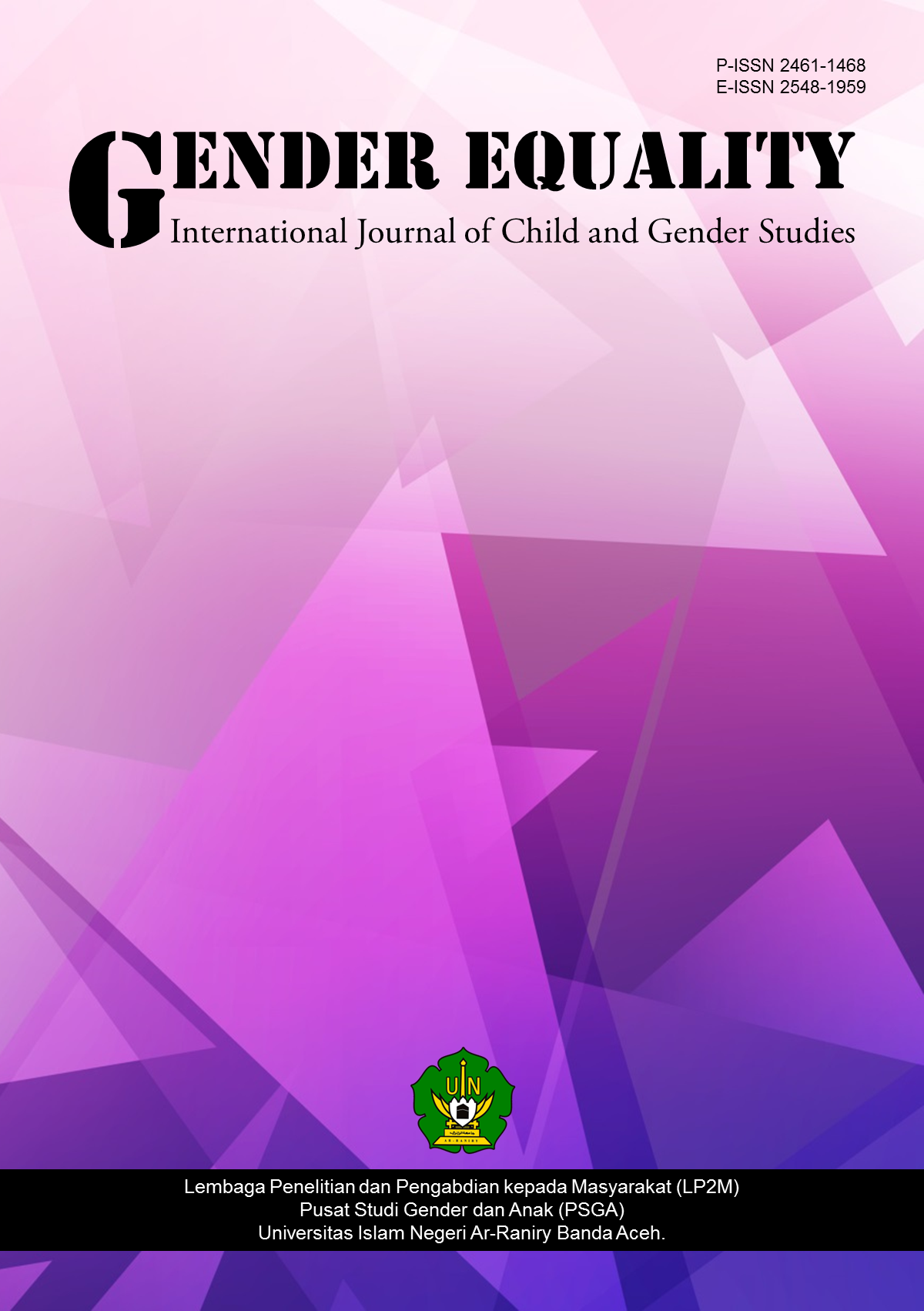PEMBENTUKAN KEPRIBADIAN ANAK MELALUI CERITA KEAGAMAAN
DOI:
https://doi.org/10.22373/equality.v5i1.5380Keywords:
Pembentukan kepribadian, Cerita KeagamaanAbstract
Religious stories are a method that can be used in educational activities to form a positive personality in students. In fact, there are now many stories that are not based on religious values. Meanwhile, to build a child's personality starts from the baby in the mother’s womb until he is born until he reaches adulthood. So to have a good person there must be start from the family, school and community environment, so that the goals and expectations to educate and teach the children with the values of Islamic, so that the next generation becomes a good person and islamic generation. This research uses the library method with the collection of materials related to the formation of a child's personality through religious stories. Parents as the first educators in the family environment, must provide instructions and direction where the child rests, as well as a teacher in educating his students must use various methods. All of that aims to direct all actions and patterns of thought and behavior or attitudes that will be born in the life of the child.References
Abdul Mujib, Kepribadian Dalam Psikologi Islam, (Jakarta: PT. Raja Grafindo Persada), hlm. 14
Abdullah, Pendidikan anak dalam Islam, Jakarta, Pustaka Amani, 2007, hal.142
Agus Fatah, makalah sharing, Sukses Berkomunikasi dan Mendongeng, TK Nizamia Andalusia, 2007, hal 3
Agus Fatah, makalah sharing, Sukses Berkomunikasi dan Mendongeng, TK Nizamia Andalusia, 2007, hal 3
Ahmadi, Ilmu jiwa anak, CV Amrico Bandung, 2008, hal.11
Departemen Agama RI, Pendidikan Agama Islam, Derektorat Jenderal pembinaan Kelembagaan Agama Islam, Jakarta, 1987, hal. 29-33
Departemen Agama RI, Pendidikan Agama Islam, Derektorat Jenderal pembinaan Kelembagaan Agama Islam, Jakarta, 1987, hal. 29-33
Djunaidatul munawwaroh dan Tanenji, Filsafat Pendidikan: perspektif islam dan umum, (Jakarta: UIN Jakarta press, 2003), hal. 167-175
Fimela, Kisah Sebongkah Roti, 2014
https://darunnajah.com/berbakti-kepada-kedua-orang-tua-di-dalam-al-quran/
https://minanews.net/pendidikan-anak-shalih-sejak-dalam-kandungan/
https://tafsirq.com/id/49-al-hujurat/ayat-13#tafsir-quraish-shihab
https://www.awalilmu.com/2018/10/mengapa-kita-harus-hormat-dan-patuh-kepada-orang-tua.html
M. Alisuf Sabri, Pengantar psikologi umum dan perkembangan, pedoman ilmu jaya, cet.I 1993, hal 96- 98
Ma’rifat.MH, Kisah-kisah Al-Quranantara fakta dann metafora, Griya Aksara HHikmah, 2009, hal. 37
Soetriswanta.AR, Usaha Kesejahteraan Sosial, kantor Wilayah Depsos.D.I. Aceh, 1989, hal 25-26
Sumadi Suryabrata, Psikologi Kepribadian, Raja Grafindo, Jakarta, 2002
Tadkiroatun Musfiroh, Bercerita Untuk Anak Usia Dini, Jakarta, DEPDIKNAS, 2005, hal 95
Ustadz Dja’far Amir, Tauhid dan Akhlak, kota kembang Yogyakarta, 19774, hal 19-21
Zainuddin, Anak dan lingkungan menurut pandangan Islam, Andes utama Prima, 2002, hal.5
Zakiyah Daradjat, Ilmu Jiwa Agama, Jakarta, Buulan Bintang, 1996, hal 56
Downloads
Published
Issue
Section
License
GENDER EQUALITY: International Journal of Child and Gender Studies allows the author(s) to hold the copyright and to retain the publishing rights without restrictions. Authors who publish with this journal agree to the following terms:
- Authors retain copyright and grant the journal right of first publication with the work simultaneously licensed under a Creative Commons Attribution License that allows others to share the work with an acknowledgment of the work's authorship and initial publication in this journal.
- Authors are able to enter into separate, additional contractual arrangements for the non-exclusive distribution of the journal's published version of the work (e.g., post it to an institutional repository or publish it in a book), with an acknowledgment of its initial publication in this journal.
- Authors are permitted and encouraged to post their work online (e.g., in institutional repositories or on their website) prior to and during the submission process, as it can lead to productive exchanges, as well as earlier and greater citation of published work.



